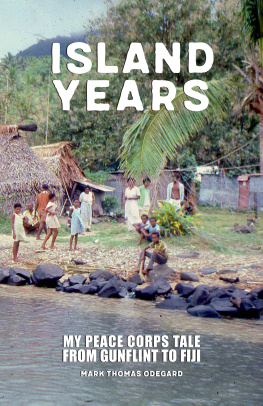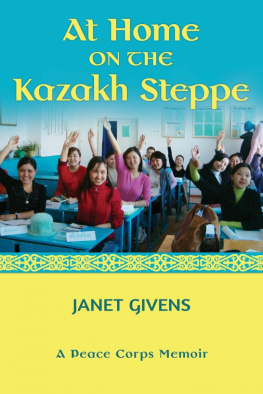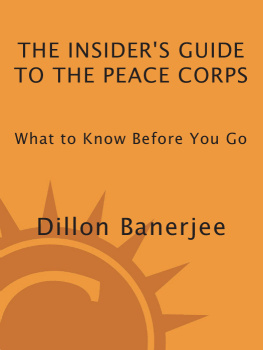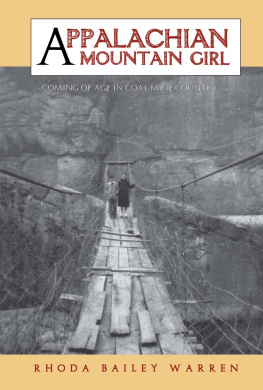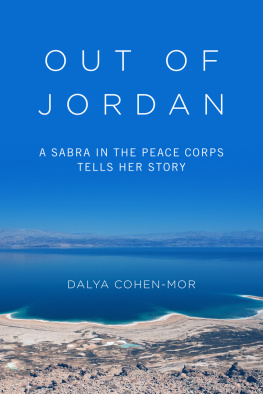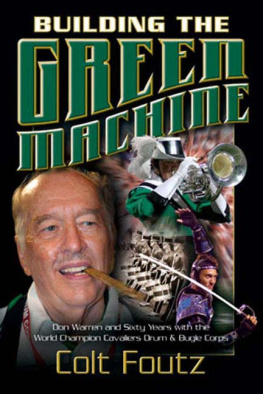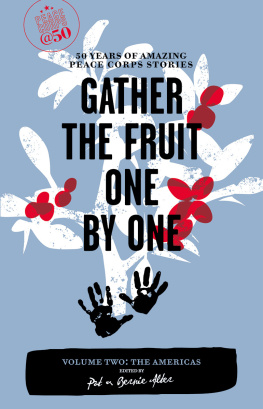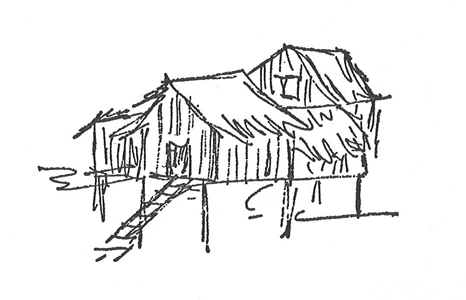Rhoda Brooks - The Barrios of Manta: A Retrospective on 50 Years of Ecuador, the Peace Corps and the Evolution of an International Family
Here you can read online Rhoda Brooks - The Barrios of Manta: A Retrospective on 50 Years of Ecuador, the Peace Corps and the Evolution of an International Family full text of the book (entire story) in english for free. Download pdf and epub, get meaning, cover and reviews about this ebook. year: 2012, publisher: Untreed Reads, genre: Non-fiction. Description of the work, (preface) as well as reviews are available. Best literature library LitArk.com created for fans of good reading and offers a wide selection of genres:
Romance novel
Science fiction
Adventure
Detective
Science
History
Home and family
Prose
Art
Politics
Computer
Non-fiction
Religion
Business
Children
Humor
Choose a favorite category and find really read worthwhile books. Enjoy immersion in the world of imagination, feel the emotions of the characters or learn something new for yourself, make an fascinating discovery.
- Book:The Barrios of Manta: A Retrospective on 50 Years of Ecuador, the Peace Corps and the Evolution of an International Family
- Author:
- Publisher:Untreed Reads
- Genre:
- Year:2012
- Rating:4 / 5
- Favourites:Add to favourites
- Your mark:
The Barrios of Manta: A Retrospective on 50 Years of Ecuador, the Peace Corps and the Evolution of an International Family: summary, description and annotation
We offer to read an annotation, description, summary or preface (depends on what the author of the book "The Barrios of Manta: A Retrospective on 50 Years of Ecuador, the Peace Corps and the Evolution of an International Family" wrote himself). If you haven't found the necessary information about the book — write in the comments, we will try to find it.
In February 1962, Earle and Rhoda Brooks, a young sales engineer and his schoolteacher wife, left home and friends in Illinois to serve as members of the Peace Corps in Manta, Ecuador. This book is an account of their life in the Peace Corps. The first book ever written by Peace Corps volunteers, it is a revealing chronicle of personal involvement, of people from vastly different cultures learning to know one another on the level of their common humanity.
Earle and Rhoda begin their story with their decision to enlist as trainees in President Kennedys people-to-people grassroots aid program. They describe their jubilation at being accepted, the initial testing in Chicago, and the briefings in New York. With warmth and humor, they recount their experiences during the four-month training period in Puerto Rico. This was a time of trials and learning, of physical exertion and mental and emotional challenge. Of the 100 men and women who had formed their original group, 61, including Earle and Rhoda Brooks, graduated from trainees to volunteers.
Earle and Rhoda were assigned to a community development project in Manta, a small fishing village on the coast of Ecuador. Here they would spend two years, working with the people, helping them to help themselves.
The Brookses story of Peace Corps life in Ecuador is no simple success story, no tale of triumph over staggering odds, rather it is one of beginnings, as these two young Americans put all their skills, knowledge, compassion, and ingenuity into an effort to provide humanitarian grassroots help in alleviating poverty and disease.
Their story also shares what they learned from their humble fisher-people friends and neighbors. From their rich and varied experience emerges a picture of Latin American life far different in focus, and in many respects, far truer, than that of learned economists and political pundits. It is an intimate, human picture of a land filled with paradoxes and beset by problems that yield no easy solutions. It is a picture of a quest for learning and sharing, not on a soapbox or in the press, but in the hearts and minds of the common people.
Now, in 2012, on the 50th anniversary of the founding of the Peace Corps and fifty years after their decision to join the Peace Corps, Rhoda Brooks has created a new Foreward and Afterword, to highlight the intervening years during which she and her husband adopted two Ecuadorian youngsters, ages 2 and 4, and brought them home to Minnesota. She tells of the growing up years of Carmen and Koki (Ricardo) in a suburban community west of Minneapolis, the birth of their biological son and the adoption of a mixed race daughter three years later. Brooks explores the challenges and opportunities presented in the raising of their bi-racial family, the pain and sorrow of the untimely deaths of her husband Earle and their daughter, Josie, as well as the excitement and apprehension generated by the return to Manta for a visit when the children were in their teens. Brooks continues the Afterword with the return to Manta of her five Ecuadorian grandchildren who, then in their teens, went to explore their roots and meet their own biological grandparents, aunts, uncles, and cousins. She concludes the final part of her story with an update into the lives of her seven grandchildren and the arrival of new great grandson, Brooks.
Rhoda Brooks: author's other books
Who wrote The Barrios of Manta: A Retrospective on 50 Years of Ecuador, the Peace Corps and the Evolution of an International Family? Find out the surname, the name of the author of the book and a list of all author's works by series.



